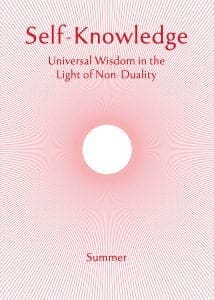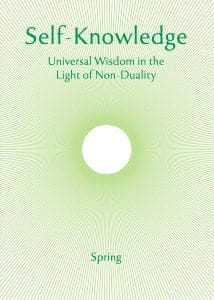The Brihadaranyaka Upanishad
The Brihadaranyaka is the longest of the Upanishads and provides an in-depth account of how one’s innermost Self is identical with the Absolute as the one and only reality. Overarching the whole text with its three hundred-plus verses is the question: What is the nature of that knowledge which replaces our sense of individuality with…
Read MoreDharma – A Candle on the Way
Dharma is a powerful word that is used in three of the world’s main religions: Hinduism, Sikhism and Buddhism. It can mean the Way or Path that is the form of spiritual practice we have chosen to adopt. Dharma also sometimes refers to religion itself, as when Hindus speak of the eternal wisdom, the Sanatana…
Read MoreNicholas of Cusa
Nicholas of Cusa (1401-1464) was born in Kues (Cusa) in south-western Germany, and rose as an administrator, bishop and cardinal of the Roman Catholic Church, as well as being a prolific writer, whose turn of thought and philosophical speculations remain of relevance to students of the non-dual teachings. The present article will focus on some…
Read MoreThe Non-Duality of Shri Shankara
Concluding our series of extracts from H P Shastri’s essay on the Outline of the Advaita of Shri Shankara Release (Moksha) According to the Advaita Vedanta of Shri Shankara, release (Moksha) is eternally true. By spiritual practices it is realised in our practical experience. Before an aspirant treads the path of Yoga he must cultivate…
Read MoreLift Yourself by Yourself
Most people value experiences that uplift the mind and make it feel better. To feel better is a vague and relative expression, so let us briefly identify some of its more worthwhile manifestations. These might include a feeling of lightness, where we are uplifted out of our worries. We may enjoy a sense of expansion…
Read MoreWho Are You My Dear One?
The Thousand Teachings of Shankara, Part One, Section One Some of us come to the non-dual teachings with an outlook shaped by the belief that there exists a Supreme Being who commands our deepest respect and gratitude, in which case we may be unsettled if the non-dual teachings seem to question the validity of the…
Read MoreTotality of Experience is Vedanta
Our life embraces the waking, dreaming and dreamless sleep states. There is something beyond these three states of consciousness. It is called Turiya, or the fourth, on which the three come and go, like waves and bubbles on water. It is known as the witness of the three. In Western philosophy the waking state is…
Read MoreSeek and You Shall Find
One of the most significant aspects of the teachings of non-duality is that they insist on the active investigation of the highest truth. The message of all the great wisdom traditions may be the same, but it is not sufficient to rest content with blind faith in the greatness of the teaching or the spiritual…
Read MoreShankara on Meditation and Knowledge
Through careful study and reflection we may gather the following conclusions from the teachings of Shri Shankara regarding the principles underlying the practice of meditation, and the means to knowledge of Reality. Meditation is but a means of mental discipline, a method of controlling the ever-shifting activity of the human mind, which has been aptly…
Read MoreBhagavad Gita Chapter 18: The Highest Refuge and Knowledge
The Bhagavad Gita Chapter 18: Part Two In the search for inner illumination, the Bhagavad Gita advises us against withdrawal from the world. The Gita teaching is not to give up active life, but to let go of attachment to our actions and their results. Giving up attachment to action means not dwelling on thoughts…
Read More


